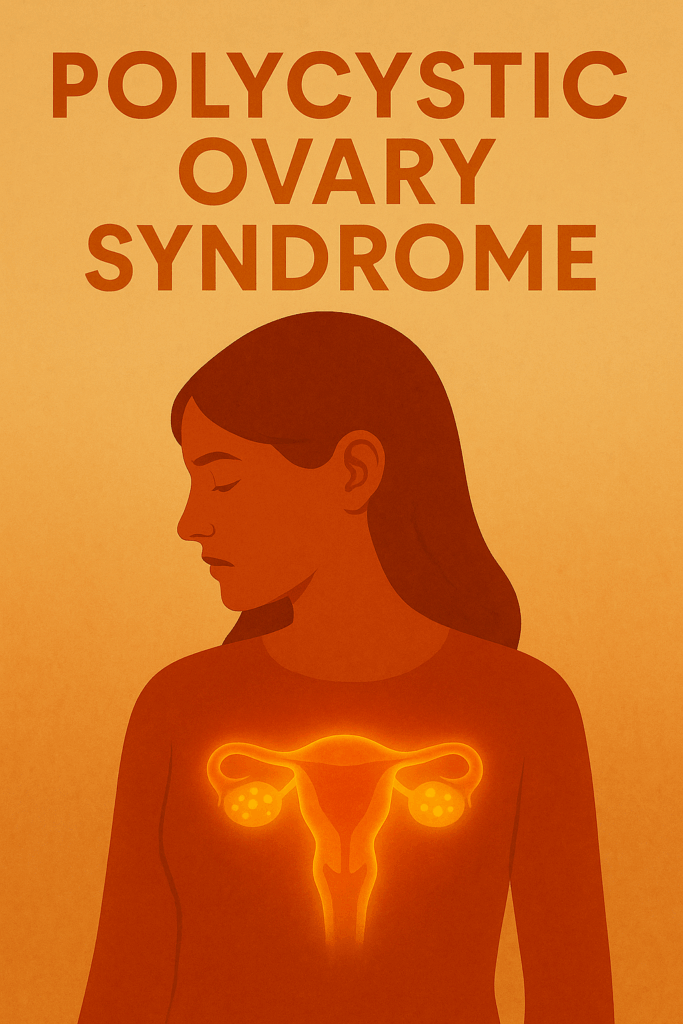Polycystic Ovary Syndrome: The Body’s Call for Hormonal Harmony and Cleansing
Polycystic Ovary Syndrome (PCOS) is often described as a hormonal disorder that affects menstruation, fertility, and metabolism. From a Natural Hygiene perspective, it is a sign that the body’s endocrine system — particularly the ovaries, adrenals, and liver — has become congested, overstimulated, and out of rhythm. The cysts that form on the ovaries are not defects but the body’s attempt to manage waste and maintain equilibrium in a system burdened by excess hormones and toxins.
The ovaries are part of a finely tuned network that regulates reproduction, energy, and balance. When the body is exposed to continual stress — dietary, emotional, or environmental — this network becomes disrupted. High levels of refined sugar, fats, and stimulants strain the liver and pancreas, leading to unstable blood sugar and increased insulin production. Elevated insulin encourages the ovaries to produce excess androgens (male-type hormones), disturbing the menstrual rhythm and preventing ovulation. This is not a random malfunction but the body’s way of adapting to internal chaos.
The root cause of PCOS lies in toxicity, congestion, and exhaustion of the body’s eliminative systems. The liver, which detoxifies hormones, becomes overburdened by modern diets rich in processed foods, oils, and chemicals. When the liver cannot effectively clear used hormones, they accumulate and circulate back into the bloodstream, leading to hormonal confusion. The formation of cysts is the body’s protective mechanism — safely storing what it cannot yet eliminate.
Healing begins with purification, not suppression. Fasting or a fruit-based cleansing period allows the liver and pancreas to rest and renew their functions. Water-rich fruits such as grapes, oranges, melons, and apples help flush the bloodstream and dissolve congestion. As the blood clears, the endocrine system recalibrates naturally. Rest is equally vital, for the nervous system governs hormonal balance; emotional stress and sleep deprivation can trigger the same hormonal responses as dietary abuse.
Movement helps stimulate circulation and lymph flow, assisting the body in clearing waste. Gentle, regular exercise like walking, yoga, or swimming improves insulin sensitivity and encourages oxygen flow to the reproductive organs. Sunshine and fresh air provide the energy and hormonal support needed to restore vitality.
Emotionally, PCOS often reflects patterns of tension, pressure, or suppression — the internalised drive to do, achieve, or control. The body mirrors this pressure through stagnation in the reproductive organs. Healing involves slowing down, softening, and trusting the body’s natural rhythm. When emotional energy begins to flow again, so too does the physical.
Synthetic hormones and medications may regulate cycles temporarily, but they do not remove the underlying congestion. Long-term healing requires cleansing the terrain so that the body no longer needs to create cysts as protection. As vitality returns, menstrual cycles regularise, energy stabilises, and the body restores its natural fertility and harmony.
Polycystic Ovary Syndrome is not a permanent condition but a message. It calls for simplicity, purification, and rest — a return to the natural rhythm of life. By listening to the body’s signals and providing it with fresh air, sunlight, hydration, pure food, and emotional ease, the endocrine system can once again function with balance and grace.

